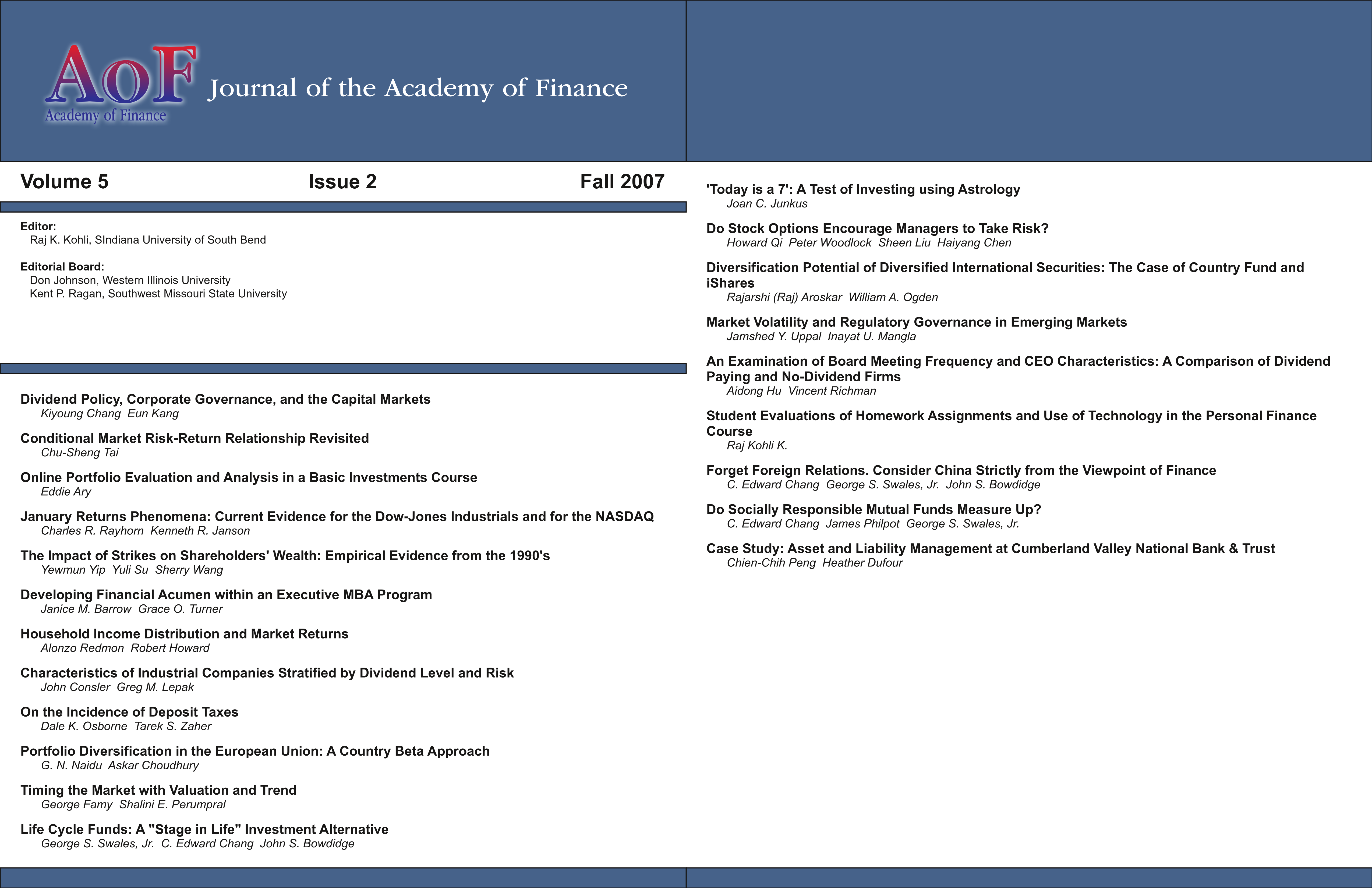The Impact of Strikes on Shareholders' Wealth: Empirical Evidence from the 1990's
DOI:
https://doi.org/10.58886/jfi.v5i2.2611Abstract
This study examines the effect of a strike on the wealth of shareholders, and whether there is a difference in the effects during various phases of a stock market cycle. Although a significant loss of shareholders' value is observed at the beginning of a strike, most of the losses are recovered upon the settlement of the strike. During a bear market, the negative impact of a strike on a firm's value is more profound, and the firm does not fully recover its value when the strike ends. On the other hand, in a bull market, struck firms not only suffer a less severe loss but also experience a quicker rebound in their firms' value. Since the duration of a strike during a bear and bull market period is not significantly different, we conclude that the observed difference in the impact of a strike during different phases of a stock market cycle cannot be attributed to the difference in the duration of a strike.





